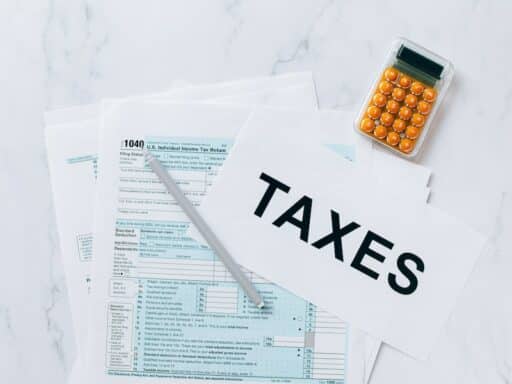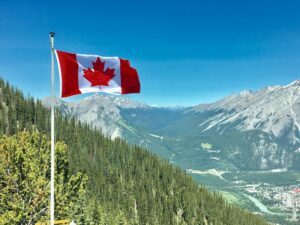When you’re considering leaving Canada for good, it’s essential to have a robust financial plan. This guide will walk you through the critical steps to ensure a smooth transition.
If you want to invest as an expat or high-net-worth individual, you can email me (advice@adamfayed.com) or use these contact options.
Step 1: Assess Your Financial Situation
Before leaving Canada for good, take a moment to assess your current financial situation.
Create a Financial Inventory
When leaving Canada for good, knowing where you stand financially is crucial. Start by listing your assets, including savings, investments, and properties. Next, detail your liabilities, such as loans and credit card debts.
Finally, analyze your cash flow to understand your monthly income and expenses. This inventory will serve as the foundation for your financial decisions abroad.
Your financial needs will vary depending on the extent of your expattery—whether you’re a nomad, a snowbird, or a full-time expat. For instance, full-time expats and recurring snowbirds might benefit from opening a local bank account to avoid foreign transaction fees.
Evaluate Your Risk Tolerance
Leaving Canada for good means you’ll face new financial challenges. Determine how much risk you’re willing to take with your investments.
Are you a conservative investor, or do you lean towards more aggressive strategies? Your risk tolerance will guide your investment choices abroad.
How you manage your everyday expenses can significantly impact your financial health. Both cash and credit have their pros and cons. Cash is universally accepted but comes with withdrawal limits and fees. Credit cards offer convenience and security but can incur foreign transaction fees. A mix of both might be your best solution.
Set Financial Goals in Leaving Canada for Good
Setting clear financial goals is crucial when leaving Canada for good. Break them into short-term (1-3 years) and long-term (4+ years).
Whether it’s buying a home abroad, saving for retirement, or building an emergency fund, having clear objectives will keep you focused.

One of the biggest headaches in foreign banking is the time, cost, and hassle of moving money between accounts and currencies. Services like TransferWise offer transparent fees and competitive rates on currency conversions, making them a good option for frequent money transfers.
Step 2: Tax Implications
When considering leaving Canada for good, understanding the tax implications becomes paramount. Canada’s tax system is comprehensive, and the Canada Revenue Agency (CRA) provides guidelines for individuals who decide to emigrate.
Departure Tax
One of the primary concerns when leaving Canada for good is the departure tax.
The CRA considers that you sold certain property types at their fair market value (FMV) the day before your departure, even if no actual sale occurred. This is known as a “deemed disposition.”
A deemed disposition means that the CRA treats you as if you’ve sold your assets, such as shares, jewelry, paintings, and collections, even if you haven’t. This can result in a capital gain, commonly called the departure tax.
If the total FMV of all the property you owned when you left Canada exceeded $25,000, you must complete Form T1161, List of Properties by an Emigrant of Canada. However, it’s essential to note that certain exemptions might apply, reducing the tax burden.
Non-Resident Tax Status
After leaving Canada for good, you transition to a non-resident tax status. This change in status has implications for how you report and pay taxes.
Upon leaving Canada for good, you should notify any Canadian payers and your financial institutions that you are no longer a resident of Canada. This ensures that you only pay taxes on Canadian-sourced income.
Even as a non-resident, you might still need to file a Canadian tax return, especially if you owe tax or want to claim a refund. The CRA provides specific guidelines on which income tax package you should use based on your last place of residence in Canada.
Tax Treaties and Double Taxation
Canada has established tax treaties with numerous countries to prevent double taxation for individuals leaving Canada for good.
These treaties ensure your income isn’t taxed in Canada or your new country of residence. It’s crucial to research whether Canada has a tax treaty with your new country to benefit from these agreements.
If you receive certain income from Canada after leaving Canada for good, the Canadian payer must withhold non-resident tax. However, you can include this income on your return by electing under Section 217 of the Income Tax Act, potentially benefiting from a reduced tax rate.
Step 3: Banking and Currency
Banking and currency management become pivotal tasks when leaving Canada for good. As you embark on this journey, understanding the nuances of financial transitions can save you time and money.
Closing Canadian Bank Accounts
When you’re on the verge of leaving Canada for good, one of the first financial decisions you’ll face is whether to close your Canadian bank accounts.
Some expats opt to maintain their accounts for Canadian transactions, especially if they have ongoing financial commitments. This can be beneficial for managing any residual income, investments, or property-related transactions in Canada.
On the other hand, some prefer a clean break to avoid potential banking fees and the hassle of managing finances across borders.
- Ongoing Financial Commitments: If you have mortgages, loans, or other financial obligations in Canada, it might be easier to keep an account open.
- Banking Fees: Some banks charge fees for non-resident account holders or if the account balance falls below a certain threshold.
- Access to Funds: Consider how often you’ll need to access these funds and the ease of international transfers.
Opening Foreign Bank Accounts
Once you’ve decided to leave Canada for good, establishing a financial foundation in your new country becomes paramount. Opening a bank account in your new country is often one of the first steps to becoming financially settled.
Every country has its banking regulations. Familiarize yourself with the requirements, such as minimum balance, documentation, and any restrictions for foreigners.

Some banks offer special packages or benefits for expats, including lower fees, free international transfers, or multi-currency accounts.
In today’s digital age, having access to online and mobile banking can make managing your finances more accessible, especially if you travel frequently or live in multiple countries.
Currency Exchange
Currency exchange is an inevitable aspect of leaving Canada for good. Whether transferring savings, receiving an income, or making international purchases, understanding currency exchange can significantly impact your finances.
Rates fluctuate daily based on various factors. Monitor them regularly, especially for large transactions.
While banks offer currency exchange, specialized services offer better rates and lower fees.
Some services also allow you to lock in a rate for a future date, providing some protection against unfavorable rate fluctuations.
Always check for hidden fees or charges when exchanging or sending money internationally.
Political events, economic news, and other global factors can influence exchange rates. Staying informed can help you make better financial decisions.
Step 4: Investments
Leaving Canada for good can be a significant turning point in your financial journey. Your investment strategy might need an overhaul after such a decision.
Canadian Investment Accounts
When you’re leaving Canada for good, evaluating the status of your RRSPs (Registered Retirement Savings Plans) and TFSAs (Tax-Free Savings Accounts) is essential. While you can retain these accounts, there are certain nuances to consider:
RRSPs can remain intact even after you’ve left Canada for good. However, any withdrawals made while you’re a non-resident will be subject to a non-resident withholding tax.
Understanding the tax treaty between Canada and your new country of residence is crucial, as it can influence the withholding tax rate.
TFSAs can be a bit more complicated. While you can keep your TFSA after leaving Canada for good, you won’t be able to contribute further without penalties.
Additionally, the tax-free benefit of a TFSA might not be recognized in your new country, potentially leading to tax implications.
International Investment Options
Diversifying your investments becomes even more critical after leaving Canada for good. It’s not just about spreading your assets but also about understanding the financial landscape of your new home.
Consider investing in local stocks and bonds. This allows you to tap into the local economy and helps in hedging against currency fluctuations. However, always be aware of the tax implications in your new country.
Mutual funds can be an excellent way for expats to invest. They offer diversification and professional management. However, ensure you know of any tax implications, especially if these funds generate income outside your new country of residence.
Diversification Strategies
Geographic diversification becomes even more vital when you’re leaving Canada for good. It’s not just about spreading risk but also about seizing opportunities in different markets.
You can protect your portfolio from regional economic downturns by spreading your investments across various regions.
For instance, if one market faces a recession, your investments in another booming market can offset potential losses.
Currency fluctuations can significantly impact your returns, especially when dealing with multiple currencies after leaving Canada for good. Consider assets that are denominated in different currencies to mitigate this risk.
Different countries might have strengths in various sectors. For instance, while one country might be a tech hub, another might be rich in natural resources.
By diversifying across sectors, you can benefit from the strengths of different markets.

Step 5: Real Estate
Real estate decisions play a significant role when leaving Canada for good. Understanding the financial implications is crucial whether you’re selling property in Canada or buying abroad.
Selling Canadian Property
If you sell your property before leaving Canada, be aware of the capital gains tax. This tax applies to the profit you make from the sale.
According to the Canada Revenue Agency, when you cease to be a resident of Canada, you are deemed to have disposed of certain types of property at their fair market value (FMV) when you left Canada. This is known as a “deemed disposition.”
Deemed disposition applies to most properties, but there are exceptions. For instance, it doesn’t apply to Canadian real or immovable property, Canadian resource property, and timber resource property. Also, certain pension plans and retirement savings plans are excluded.
You must report any capital gains or losses resulting from your deemed disposition on your tax return for the year you leave Canada.
If the FMV of all the properties you owned when you left Canada was more than $25,000, you must complete Form T1161, List of Properties by an Emigrant of Canada.
Failing to file Form T1161 by the due date results in a penalty of $25 for each day the return is late, with a minimum penalty of $100 and a maximum of $2,500.
However, you can elect to defer the tax payment on income relating to the deemed disposition, known as the departure tax.
Buying Property Abroad
After leaving Canada for good, you might consider buying property in your new country. Research the legal considerations and market conditions before making a purchase.
Each country has its own set of legal requirements for property ownership. Ensure you understand your new country’s property laws, including ownership restrictions and property taxes.
Real estate markets can vary significantly from one country to another. Research the market trends, property values, and economic indicators where you’re considering buying property.
When leaving Canada for good, you must explore how to finance your property purchase abroad. Some countries may offer mortgage options for expats, while others may require a substantial down payment.
Step 6: Insurance Needs
Insurance acts as a safety net, especially when you’re leaving Canada for good. It’s not just about having a policy but ensuring it aligns with your new life abroad.
Health Insurance
The healthcare landscape varies significantly across countries. After leaving Canada for good, securing an international health insurance plan tailored to your needs is essential.
International health insurance provides comprehensive coverage for medical expenses and related services for individuals outside their home country. These policies are designed for foreign nationals, including expatriates and global citizens.
They typically cover medical expenses, including doctor visits, hospitalization, and emergency care. Some plans even offer dental and vision care, maternity care, and wellness programs.
Here are the benefits of international health insurance:
- Global Medical Coverage: Whether you need routine check-ups, treatment for chronic diseases, or emergency care, international health insurance ensures you’re covered wherever you are.
- Flexibility: These plans often allow you to choose your healthcare providers and offer various coverage options to fit different budgets.
- Emergency Medical Evacuation: In countries with limited medical facilities, having a plan that covers emergency medical evacuation can be a lifesaver.
Life and Disability Insurance
Life and disability insurance are about safeguarding your family’s financial future, especially when leaving Canada for good.
Life insurance provides a financial safety net for your loved ones during your untimely demise. It can help cover funeral costs, pay off debts, and financially support your family.
Disability insurance offers protection against the unexpected. If an injury or illness prevents you from working, this insurance provides a portion of your income, ensuring you can meet your financial obligations.
Step 7: Retirement Planning
Retirement planning is essential, especially when leaving Canada for good. Understanding Canadian and foreign pension systems becomes crucial as you transition to a new phase in a different country. This ensures you maximize your retirement benefits and live comfortably.

Canadian Pension Plans
The Canada Pension Plan (CPP) is a significant consideration for those leaving Canada for good. The CPP retirement pension is a monthly, taxable benefit designed to replace a portion of your income when you retire.
Here are some key points to understand:
- Eligibility: To qualify for the CPP retirement pension, you must be at least 60 years old and have made at least one valid contribution to the CPP. These contributions can come from work you did in Canada or from receiving credits from a former spouse or common-law partner.
- Application: CPP payments aren’t automatic. If you’re leaving Canada for good, remember to apply. It’s advisable to apply before you want your pension to start.
- Pension Amount: The amount you receive depends on your average earnings throughout your working life, your contributions to the CPP, and the age you decide to start your CPP retirement pension. You can begin receiving it as early as 60 or as late as 70. The earlier you start, the smaller the monthly amount. Conversely, starting later results in a larger monthly amount.
- CPP Enhancement: Since 2019, the CPP has been undergoing enhancements. This means that today’s workers will benefit more through a slight increase in their CPP contributions. The enhancement consists of the base CPP, a first additional component phased in between 2019 and 2023, and a second component to be phased in between 2024 and 2025.
Foreign Pension Plans
When leaving Canada for good, it’s essential to familiarize yourself with the pension system of your new country. Each nation has unique retirement benefits, contribution requirements, and eligibility criteria.
Here are some steps to take:
- Research: Delve into the pension system of your new country. Understand the eligibility criteria, benefits, and contribution requirements.
- Integration: Determine how your Canadian pension (CPP and OAS) integrates with your new country’s system. Some countries have agreements with Canada that allow for the seamless integration of pension benefits.
- Consultation: Consider consulting a financial advisor familiar with both Canadian and foreign pension systems. They can provide insights into maximizing retirement benefits when leaving Canada for good.
Pained by financial indecision?

Adam is an internationally recognised author on financial matters with over 830million answer views on Quora, a widely sold book on Amazon, and a contributor on Forbes.



